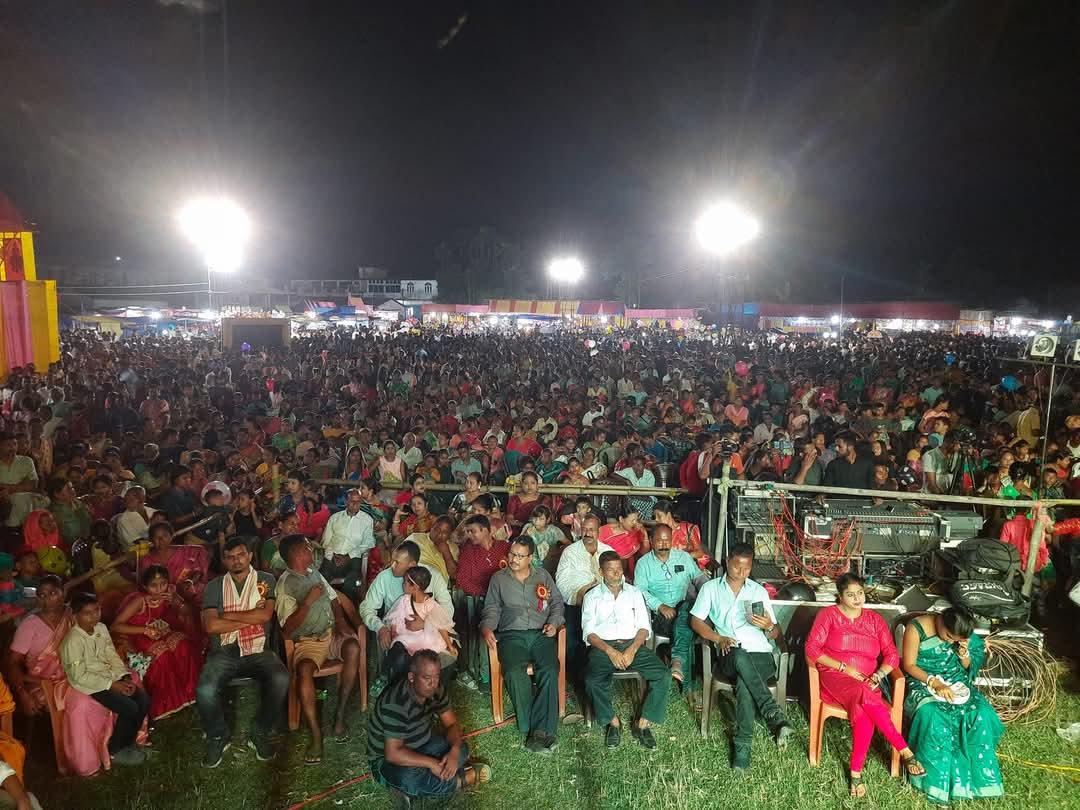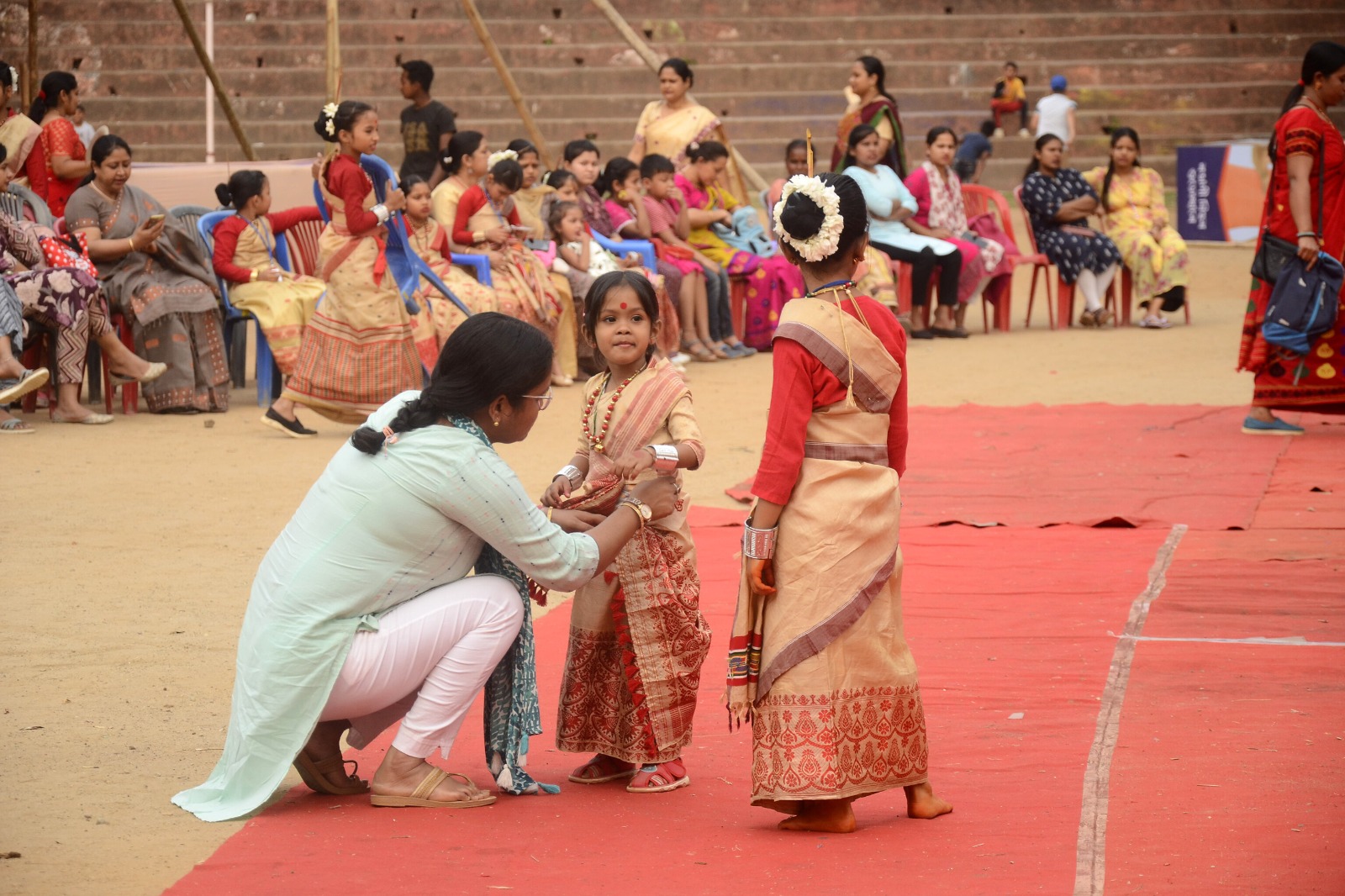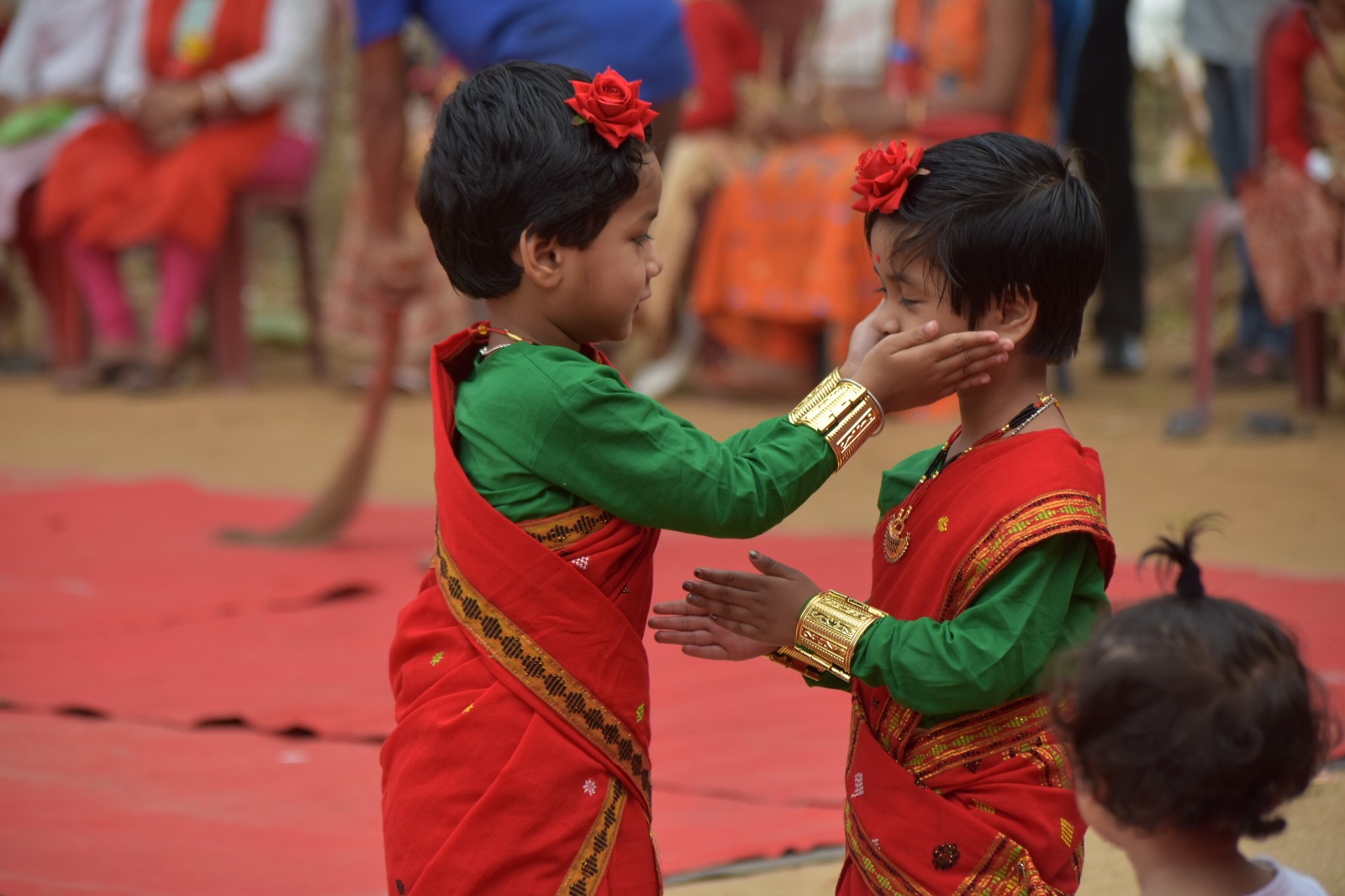Bihuti bosori ahibaa
Asomi aaike jogaaba
Bipodor kalato mah haldhire
Jatitor deh mon dhuwaba
(O Bihu, return each year
Reviving our Mother Assam.
In times of sorrow, with turmeric's healing touch,
Cleanse our bodies, our souls and our race)
- Dr. Bhupen Hazarika
The melodious call of the Koel, accompanied by the lively rhythms of the dhol and pepa floating in from a nearby Bihu rehearsal, beautifully signals the arrival of Bohag and reflects the vibrant essence of Rongali Bihu.
Bohag Bihu, also known as Rongali Bihu, is one of the most vibrant and emotionally significant festivals in Assam. Celebrated during the Assamese New Year in mid-April, it marks the arrival of spring and the beginning of the sowing season. It is a time of renewal, joy and community bonding, where people clean their homes, wear new clothes, visit family and friends, and indulge in traditional delicacies. Most importantly, Bihu celebrates Assamese culture through music, dance and a deep connection to the land. The air reverberates with the sound of dhol, pepa, and gagana, and open fields and stages turn into arenas of cultural performance and celebration.

A packed house at a Bihu programme.
It is against this backdrop that the GPlus team took to the streets of Guwahati to delve into a pressing question: Is the craze for watching Bihu performances live fading with time? What emerged was a mix of emotions, opinions, and personal reflections.
Several people shared that earlier they used to plan days ahead, excitedly discussing which Bihu function to attend and which artiste to watch perform. But now, that level of anticipation seems to be missing.
A girl leading a Bihu dance workshop mentioned that although there are still people eager to learn, many attend these workshops casually and they prefer learning from YouTube tutorials directly. This shift from live, communal learning to digital consumption is one of the noticeable changes in how the younger generation is engaging with Bihu.

Still from a Bihu workshop.
Then there are people who prefer to experience Bihu in their hometowns rather than in cities like Guwahati. The connection to one’s roots, family, and familiar cultural settings adds an emotional layer that urban celebrations may lack. One respondent summed it up well: "Bihu is an emotion for some, but not for everyone. That difference in sentiment is impacting the overall excitement."
A college student mentioned that he doesn’t plan to attend any shows this year. He simply wants to take some rest. However, he added a significant point—while he may skip this year’s events, it’s important that people don’t forget their roots, because the cultural consequences could be long-term. Interestingly, when asked about their favourite Bihu performers, most people mentioned well-known names like Zubeen Garg and Papon. In contrast, names from the past such as Khagen Mahanta were remembered with fondness. It was evident that artiste popularity often determines whether people attend a performance or not.
A school teacher pointed out that while the footfalls at Bihu functions might seem the same, the knowledge about the festival and its deeper significance is declining. As an educator, she makes it a point to explain to her students what Bihu truly means beyond the performances and food. On the other hand, a young student remarked that the craze is very much alive, especially due to social media, which is actively promoting Bihu events and drawing larger crowds.

Children playing at the Bihu workshop.
By the end of our street conversations, one thing became clear—opinions are divided. While many feel that the excitement surrounding Bihu is slowly decreasing, others believe it’s evolving with time. The easy availability of alternative entertainment through smartphones and television might be a factor. Well, there’s a striking irony in how people willingly spend large sums on concert tickets for popular celebrities, yet often hesitate to support local Bihu artistes performing nearby.
So, what exactly is behind this shift? Is it the rise of digital entertainment? Is it a generational gap where parents don’t stress the importance of cultural education? Or is it just the natural course of change in a rapidly modernising society? As we reflect on these varied perspectives, we leave you with this thought: Bihu has always been more than just a festival. The real question is—are we still celebrating it with the same heart, or just watching it pass us by?



